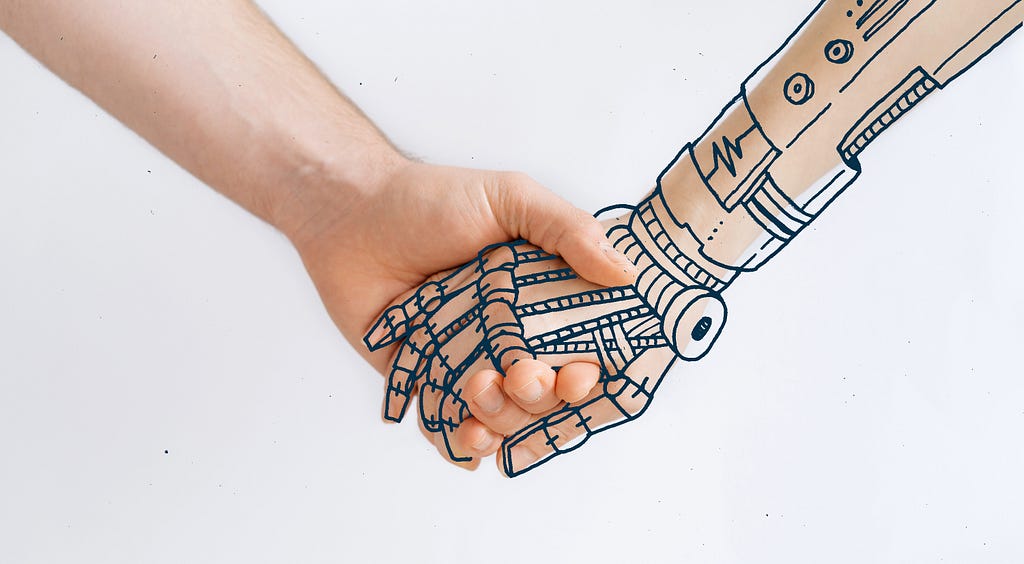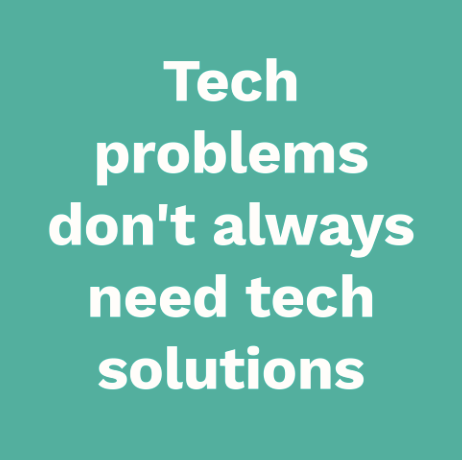Why does Doteveryone care about care?

The UK’s care infrastructure is in crisis. Health and social care, mental health care and childcare are all short of funding and short of staff. Providers are shutting down as the fees paid by cash-strapped councils too low to cover their costs, despite pay so low that a third of social care workers receive below minimum wage. As services suffer families have been quietly taking on much of the strain, to the detriment of their own mental and physical health.
Yet needs and costs continue to grow.
Automation has been hailed as a potential saviour for the sector, but how this would work, is still up for debate. There are many complicating factors, from the difficulty of designing robots with the dexterity to help people dress and bathe, to the structural question of who will invest in and own these expensive automated systems, and where savings and profits will flow.
We might baulk at the idea of a robot providing care, but that is not the only way technology can cause harm. When human carers are being exploited, with their work monitored and controlled by algorithms that push them to the point of exhaustion in the name of efficiency, the ‘human touch’ may still be lost.
At Doteveryone, we champion responsible technology. Responsible technology considers context, contribution and potential unintended consequences. It is founded on fair and transparent value exchange and works in the best interests of the individual and society as a whole. Many of these elements are missing from the current conversation about the future of care.
For a more sustainable, effective and fair care system, we need to do more than simply add automation to existing infrastructure in the hope of marginal savings. New technologies can provide an opportunity for reflection and support radical change. For example, rather than micromanaging carers, could machine learning help to highlight the impact care can have on community wellbeing, or to uncover abuses of both service users and staff?

Tech won’t be the whole answer to these problems. If we want to support people who care for loved ones to stay in work we need to change social and working norms. But this movement can be supported by better tools for flexible and distance working, for sharing responsibilities, connecting with experts and monitoring health conditions.
Robotics, exoskeletons, and smart homes may all have a dramatic impact on care, but they will work best when designed to support users, building on the knowledge and skills of those on the front line.
There are a number of unrealised opportunities we are yet to uncover, so Google.org are supporting us with funding for a programme of research into automation in care to find out.
In it we’ll be exploring some of the following questions:
- What are the future social impacts of care technologies that we need to be thinking about now?
- How do both the UK’s care infrastructure, and care technologies themselves, need to change to anticipate these impacts?
- In a technology-mediated society, how can the wider effects of care relationships be better recognised and understood?
We are welcoming input from people involved in all parts of the care ecosystem; users of formal care services, care professionals, providers, commissioners and innovators. We want to talk to industry, individuals, families and communities with perspectives on providing, receiving or exchanging care.
To take part please get in touch with us directly at: [email protected].
And if you’re interested in staying informed on the general progress of this work, make sure you sign up for updates. (We won’t use this more than once a month).
Why does Doteveryone care about care? was originally published in Doteveryone on Medium, where people are continuing the conversation by highlighting and responding to this story.